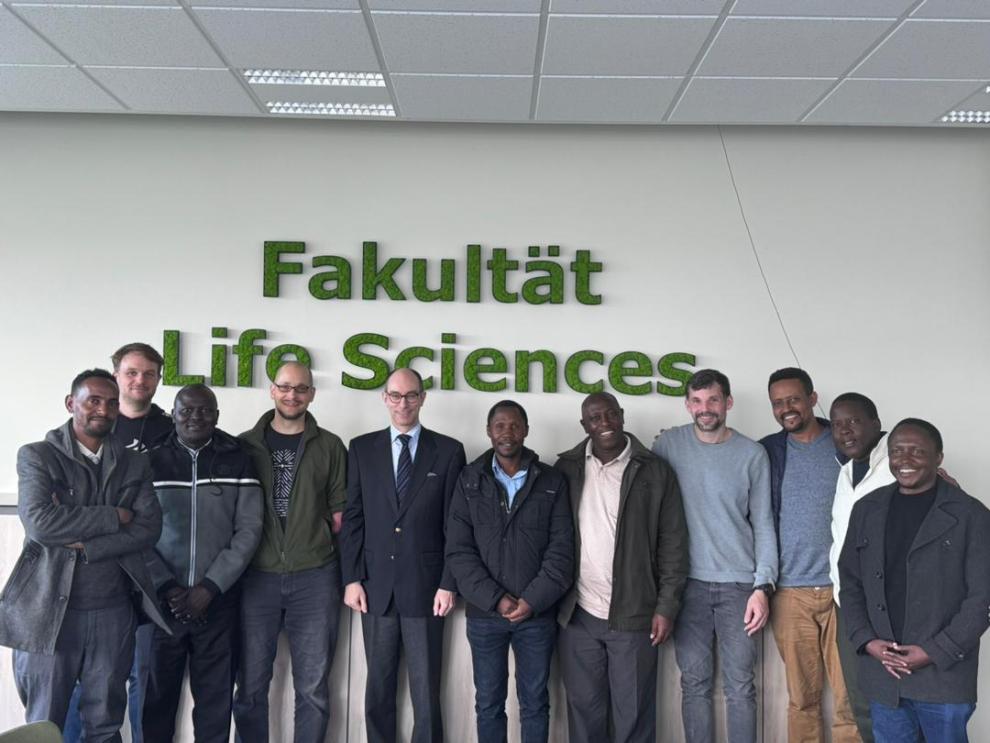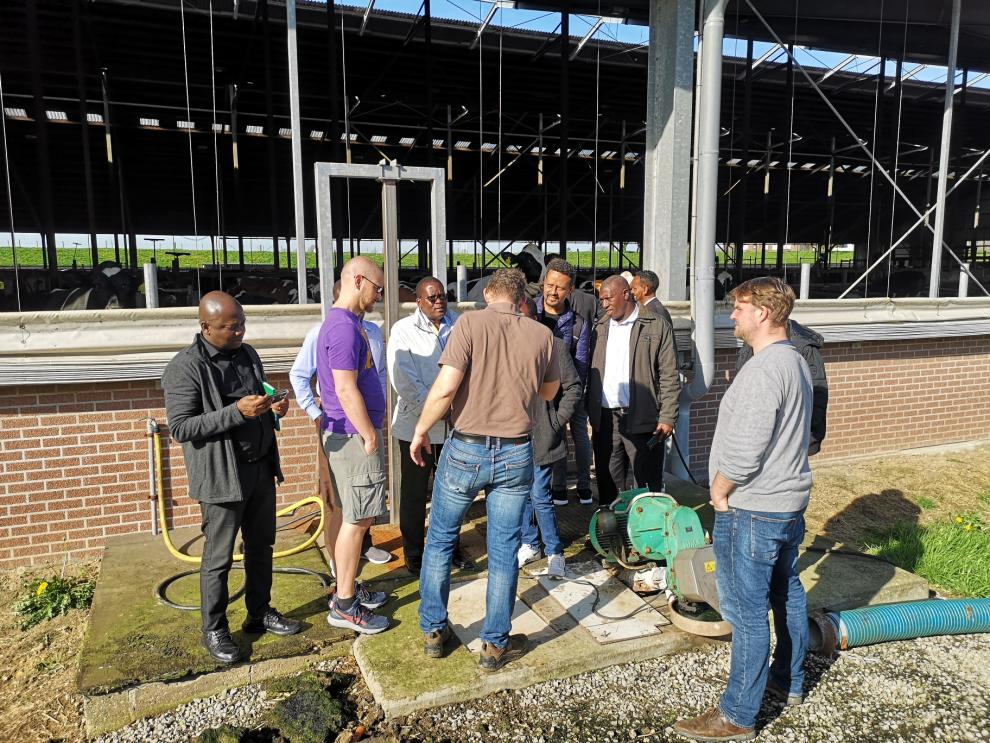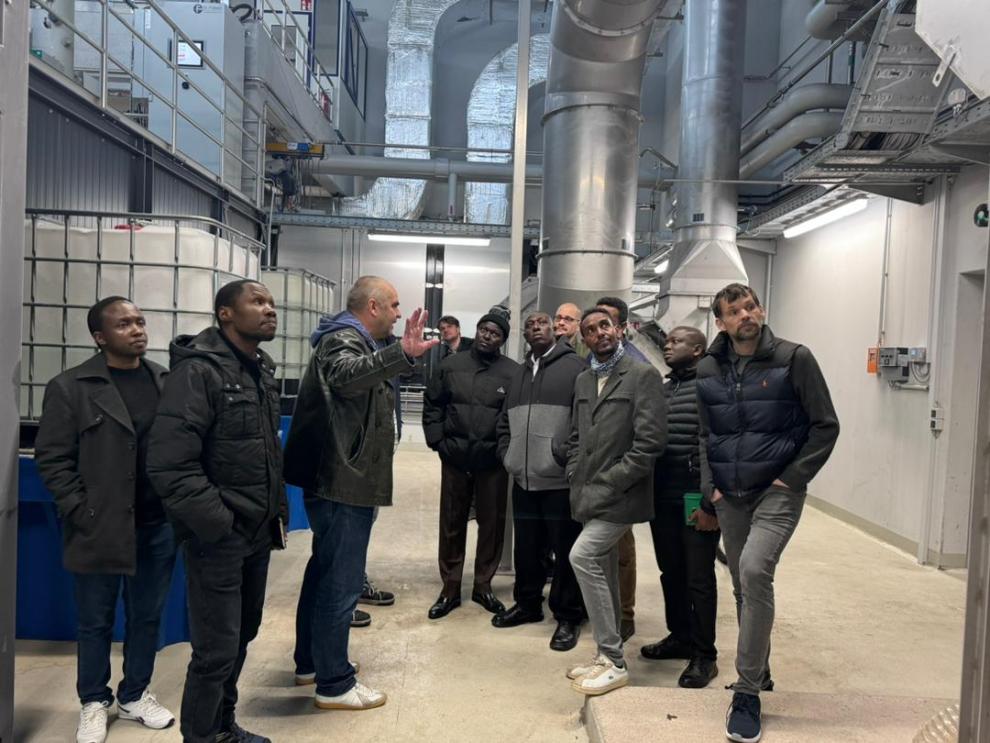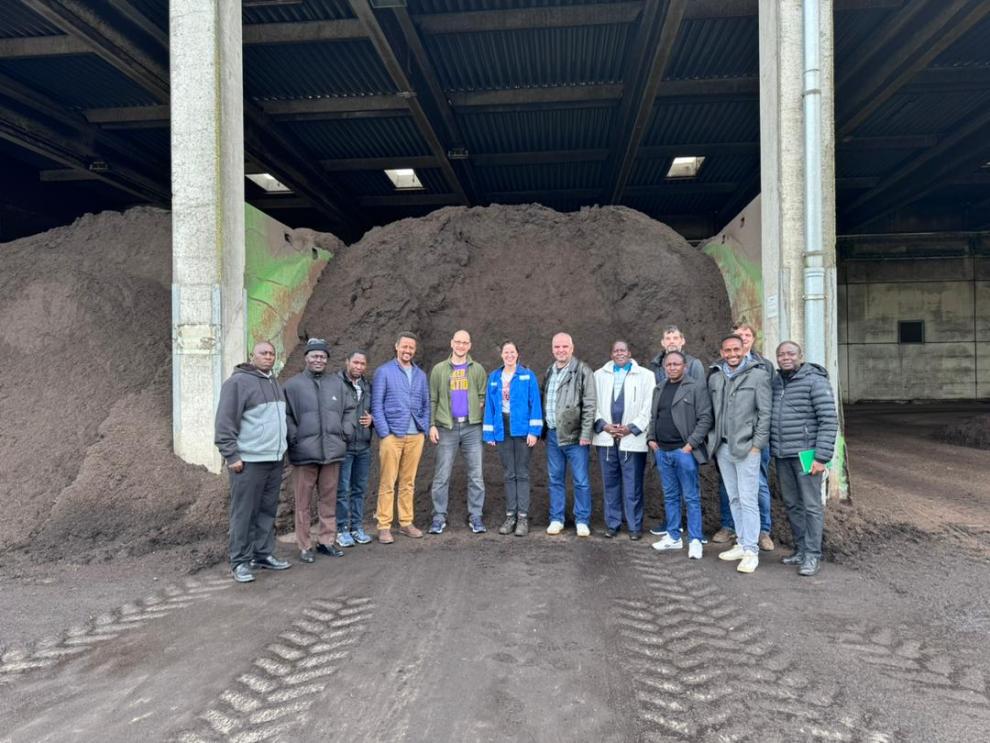Sustainable agriculture: Visit to Rhine-Waal University of Applied Sciences as part of the green-COW project
A delegation from Germany and several African countries visited Rhine-Waal University of Applied Sciences as part of the green-COW project. The project, officially known as "Cascade utilisation of agricultural, agro-industrial and municipal organic waste", is funded by the German Research Foundation (DFG). The aim of the project is to develop sustainable and circular utilisation systems for organic waste.
Exchange of experience and practical insights
During the visit to Rhine-Waal University of Applied Sciences, various activities were organised to promote exchange and cooperation. The delegation visited various facilities that exemplify the environmentally friendly utilisation of biomass. The technical processes and monitoring of the biogas production process were explained in the control room of the Siebers agricultural company's biogas plant, with the delegation showing great interest in the control mechanisms and the increase in efficiency through modern technologies. At the Schönmackers composting plant in Goch, the participants discussed the processing of organic waste and the quality control of compost products, gaining valuable insights into industrial composting and the possibilities of reusing organic material. A highlight of the visit was the tour of the sewage sludge pyrolysis plant at the Salmorth sewage treatment plant operated by USK - Umweltbetriebe der Stadt Kleve. Here, the participants learnt how sewage sludge is converted into coal through pyrolysis.
At the end of the visit, the delegation met with the Dean of the Faculty of Life Sciences at Rhine-Waal University of Applied Sciences. Future collaborations and joint research projects were discussed. The green-COW project is an important step towards more sustainable and environmentally friendly agriculture. Through close international cooperation and the exchange of knowledge and technologies, the project can make a long-term contribution to improving living conditions in rural areas of East Africa. While funding from the DFG was initially focussed on establishing cooperation, the participants are now looking for further funding opportunities to put their project ideas into practice. It was decided to further intensify the collaboration and to submit joint research proposals in order to test and implement the developed approaches on a larger scale.
Insights into sustainable waste management
The green-COW project was launched in mid-2022 as part of the African-German Science Exchange Programme, an initiative of the DFG. Scientists from Germany and sub-Saharan Africa were invited to identify common interests in the field of agriculture and develop cooperative projects. Under the leadership of the Institute for Rural Structural Research (IfLS) and in cooperation with partners from Germany, Ethiopia, Kenya, Tanzania and Uganda, the project idea of cascading utilisation of organic waste was developed.
In many rural areas of East Africa, the agricultural sector is the most important employer. The local industry and processing are heavily dependent on primary agricultural products. Despite this importance, organic waste is often not utilised or is incinerated instead of being reused as compost. green-COW aims to counteract this problem by developing sustainable approaches to reusing this waste and thus closing nutrient cycles.
An international consortium
The green-COW project is supported by a broad-based international consortium. In addition to the IfLS, the consortium includes Rhine-Waal University of Applied Sciences and Geisenheim University from Germany, Great Lakes University in Kisumu and Chuka University from Kenya, Bahir Dar University and Wollo University from Ethiopia and the Nelson Mandela African Institute of Science and Technology (NM-AIST) from Tanzania. The consortium is complemented by Gulu University and Busitema University in Uganda. This diverse partnership enables a comprehensive exchange of knowledge and technologies across continents and strengthens cooperation in the field of sustainable agricultural practices.





